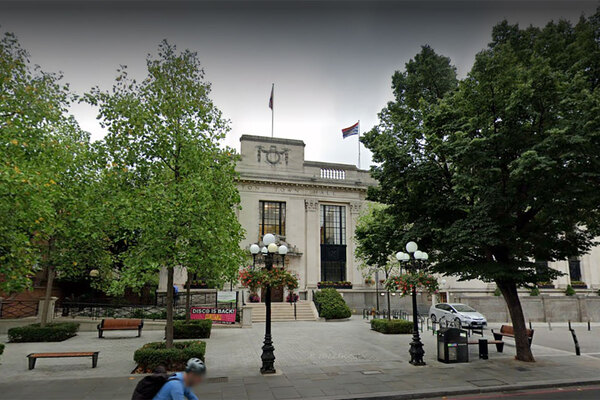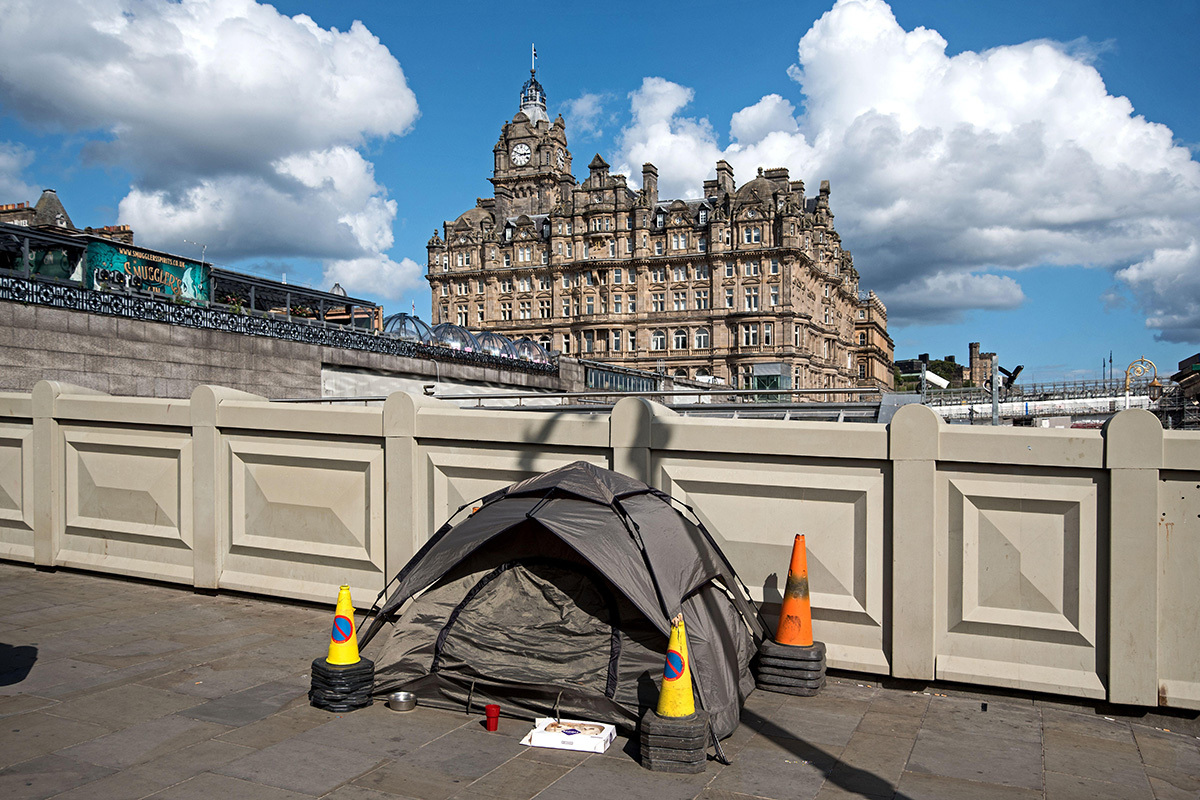You are viewing 1 of your 1 free articles
Three simple ways Jeremy Hunt’s Budget could help councils tackle homelessness
The Spring Budget is an opportunity for the chancellor to make changes that mean everyone has a safe roof over their head, argues Matt Downie, chief executive of Crisis
Over the past few weeks, chancellor Jeremy Hunt will have seen the seemingly endless stories of councils finding themselves in significant financial difficulty.
As the head of an organisation on the frontline of the homelessness crisis, my view is that reports of councils looking to close social housing waiting lists or halve homelessness budgets are alarming. We know first-hand the crucial work councils do to provide support to people in need, whether it’s tenancy support, temporary shelter or a permanent home.
When it comes to tackling homelessness, these services are needed more than ever. In England, homelessness is currently rising across every measure. We are seeing more people sleeping rough, and more forced to sleep in cars and tents. Thousands more are surfing on the sofas of friends.
For families with children, there has been a record increase in the use of hotels and B&Bs as councils try to accommodate people – and let’s be clear: these are not quaint B&Bs with matching lamps and tables.
A decade ago, 206,000 households were facing homelessness. It is now 242,000 households. There’s a real possibility that, without intervention from government, England could see the equivalent of the whole population of Wigan or Coventry facing homelessness in 2041.
What can be done? Ultimately, we need all political parties to set out a long-term plan to end all forms of homelessness, with the delivery of social housing at its very heart.
But with local authorities facing huge demand, and crippling financial pressure, there are three simple things the chancellor can do right now to prevent more councils from being pushed into the red.
“There’s a real possibility that, without intervention from government, England could see the equivalent of the whole population of Wigan or Coventry facing homelessness in 2041”
First and foremost, Mr Hunt must listen to calls from councils of all political parties, including his own, to lift the subsidy cap on temporary accommodation. Keeping the subsidy cap frozen since 2011 has left councils across England facing significant shortfalls in meeting their temporary accommodation costs, with now regular reports of near bankruptcy as a result. This is the single biggest policy change we hear most often from our local authority colleagues and it’s now obvious and urgent that the cap must be lifted.
Next, Mr Hunt could boost the ability of councils to support people who are homeless into private rented homes by providing investment in Discretionary Housing Payments (DHPs). These payments are crucial to help councils support people who face large gaps between their rent and the financial support they receive to help pay it, because of welfare changes.
In recent years, alongside rising rents, DHP budgets have also been cut, making it even harder for councils to support people who are facing financial pressures and are at risk of homelessness. Investing in DHPs by at least £100m this year would make a huge difference to councils’ ability to both prevent people from becoming homeless and provide needed support to help people out of homelessness.
Finally, the chancellor could build on the welcome, and much-needed, recent investment in Local Housing Allowance (LHA) rates announced in last year’s Autumn Statement by maintaining this investment beyond the next financial year.
The freeze on LHA rates has been driving increased homelessness in recent years and Mr Hunt took a significant step forward by announcing that LHA rates would be unfrozen from April 2024.
But without long-term investment, he risks wasting a significant opportunity to keep people in more stable accommodation and bring down homelessness. With LHA rates yo-yoing between frozen and unfrozen in recent years, councils and frontline homelessness services across Britain know that re-freezing LHA rates only pushes more people into homelessness in the long- term.
In this election year, we need political parties of all colours to show that they are committed to ending the crisis of homelessness – visible and hidden – across England.
For opposition parties, that means taking stock of what is happening and forming a programme to end it. For the current government, that is making definitive changes that can help overwhelmed councils cope.
At the end of last year, housing secretary Michael Gove said in parliament that “Conservatives exist to protect the vulnerable in society”. Next week, the chancellor can show that these words and principles will produce positive change: that every person in England, irrespective of background or wealth, should have a safe roof over their head, and the chance of a positive future ahead of them.
Matt Downie, chief executive, Crisis
Sign up for our homelessness bulletin
Already have an account? Click here to manage your newsletters













